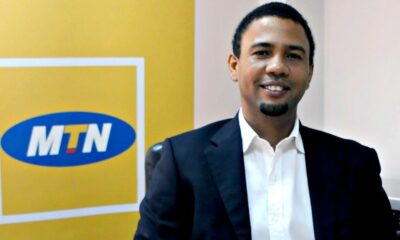Telecommunications
Glo Launches New Auto Credit Service to Enable Customers Enjoy Seamless Transition And Connection
Glo’s E-Top up service will ensure that customers’ conversation runs seamlessly by providing immediate credit for those who run out of credit mid-conversation.

Telecommunications
Nigeria to Expand Internet Access with 90,000km of Fibre Optic Cable
Telecommunications
Naira Devaluation Spurs Airtel Africa’s $549 Million Forex Loss
Telecommunications
Telecom Tax, Other Levies Back on the Table for $750m Loan
-

 Naira4 weeks ago
Naira4 weeks agoDollar to Naira Black Market Today, April 17th, 2024
-



 Naira4 weeks ago
Naira4 weeks agoDollar to Naira Black Market Today, April 18th, 2024
-



 Naira3 weeks ago
Naira3 weeks agoDollar to Naira Black Market Today, April 24th, 2024
-



 News4 weeks ago
News4 weeks agoARISE News Channel Goes Global: Launches in Nine Southern African Countries
-

 Travel4 weeks ago
Travel4 weeks agoAir Peace Flight Delayed, Passengers Stranded After Failed Promise of Hotel Stay
-





 Naira4 weeks ago
Naira4 weeks agoDollar to Naira Black Market Today, April 22nd, 2024
-



 Jobs3 weeks ago
Jobs3 weeks agoJob Cuts Hit Tesla: More Than 6,000 Positions Axed Across Texas and California
-

 Naira3 weeks ago
Naira3 weeks agoDollar to Naira Black Market Today, April 25th, 2024


















